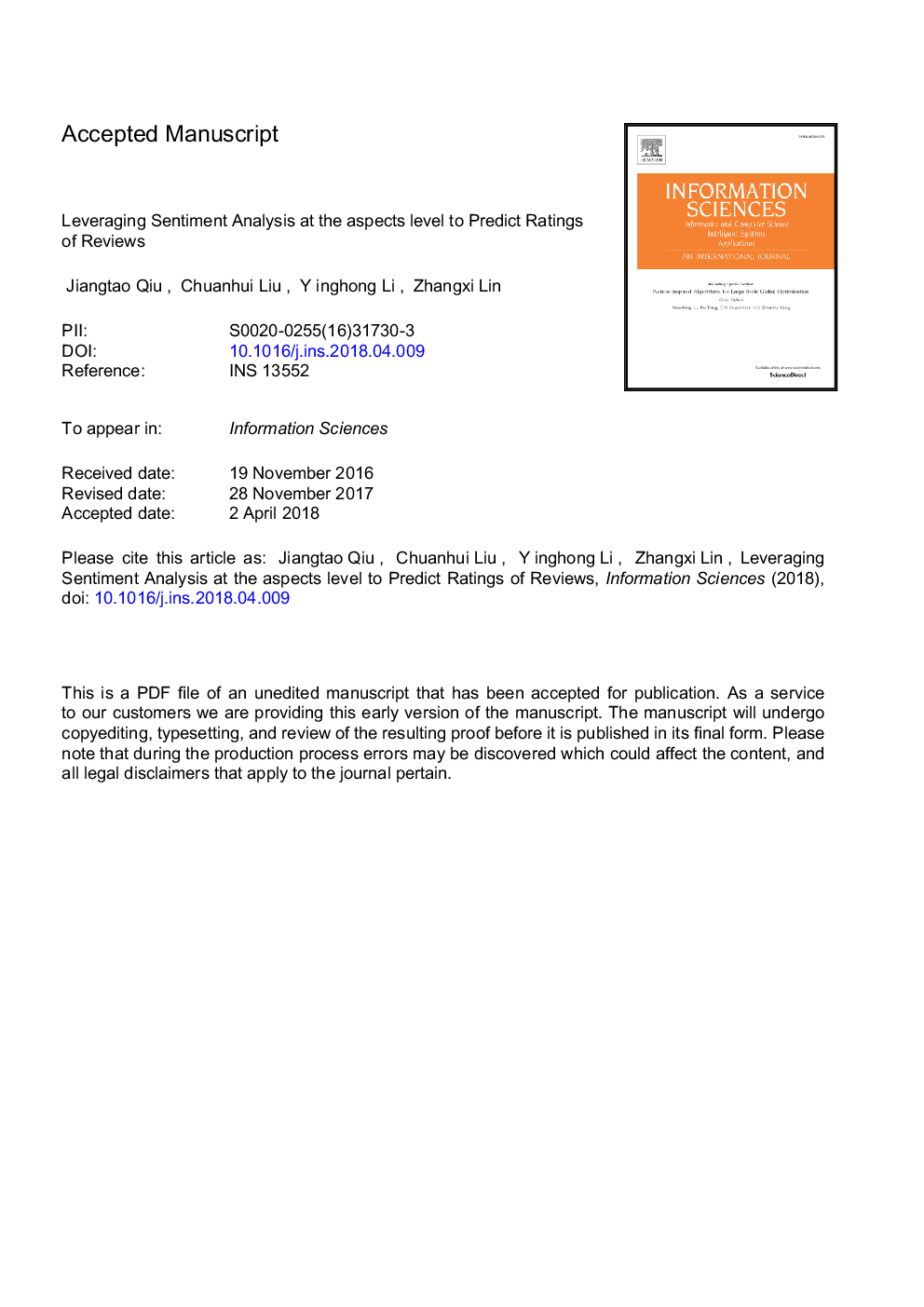ترجمه فارسی عنوان مقاله
تجزیه و تحلیل احساسات در سطوح مختلف برای پیش بینی رتبهبندی بررسیها
عنوان انگلیسی
Leveraging sentiment analysis at the aspects level to predict ratings of reviews
| کد مقاله | سال انتشار | تعداد صفحات مقاله انگلیسی |
|---|---|---|
| 98671 | 2018 | 34 صفحه PDF |
منبع

Publisher : Elsevier - Science Direct (الزویر - ساینس دایرکت)
Journal : Information Sciences, Volumes 451â452, July 2018, Pages 295-309
ترجمه کلمات کلیدی
تجزیه و تحلیل احساسات، عدم تعادل کلاس، امتیازات بررسی، هوش تجاری،
کلمات کلیدی انگلیسی
Sentiment analysis; Class imbalance; Ratings of reviews; Business Intelligence;

